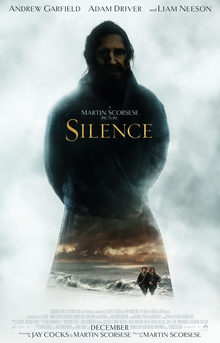How can we possibly engage with our moral mistakes without being prepared to confess them? Confession can be a crucial integrative practice, but when I was brought up in a Protestant household, confession was simply never discussed. The sacrament of confession, still practised by Catholics, had been rejected by Protestants at an early stage of the Reformation: and no wonder, when you look at what Catholicism has turned it into. By imposing absolute beliefs on it and ignoring the complexity of moral experience, Catholicism has turned confession into a by-word for out-of-touch and authoritarian rules, alienated obedience, irrational guilt, and formalistic penitence. Only in Buddhist practice have I encountered a more helpful approach to confession, with Sangharakshita especially developing some realistic and balanced approaches to it. But recently, in the process of writing a book on the Middle Way in Christianity, I have been thinking anew about the role of confession. What follows is an adapted version of the chapter that has resulted.
The practice of confession is one of the seven sacraments in Roman Catholicism, and has a central place in regular Catholic practice, due to the requirement for Catholics to attend confession and gain absolution before attending mass. Confession has been rejected in the Protestant tradition because of the belief in salvation by faith, which took away the motivation for confessing and absolving sin as a way of re-accepting Christ’s atonement and thus gaining ‘salvation by works’. This is a great shame, because confession, if not freighted with absolutism, can be a very useful practice. Protestants are missing a possibly important tool of moral practice, because of an irrelevant debate about absolutisations concerning salvation.
Let us first review what the basic process of confession is, or might be if shorn of the unnecessary superstructure it has acquired in Catholicism. An individual recognises that they have committed an action (or perhaps even maintained an intention) of which they are ashamed and that they recognise as morally negative. They may recognise their action as morally negative because they have previously committed themselves to maintaining a certain moral standard, or because they recognise others as upholding a moral standard to which they aspire and that they have fallen short of. In recognition of their fault, they confess it to another person who shares (and preferably exemplifies) the moral ideals they are seeking to follow. By doing this, they are able to reinforce their commitment to improving their moral practice by having it socially reflected, so the action may well help the person to avoid committing the same negative action again, thus developing greater integration as they remove a source of conflict within themselves, and bringing them closer to the archetype of God within themselves.
This picture of how confession might be effective contrasts with all the unhelpful elements that have been incorporated into the Catholic practice of confession. Firstly, there are rigid and absolutised moral rules that are often at some remove from people’s moral experience: notoriously including the prohibition of masturbation and of the use of artificial contraception. To begin with, these distort and undermine confession, as well as ethical practice in general, by associating morality itself with stupid and out-of-touch rules rather than with the development of moral experience. If people are asked to confess breaches of rules they do not perceive as genuine moral rules, but only as impositions of authority, they will rapidly become either alienated from the whole process or unhelpfully guilty.
Secondly, in Catholicism the process has become associated with a formalised penance and absolution, in which the priest represents the supposed power to forgive sins that is authorised by Christ’s atonement. This involves a fundamental misunderstanding of the process of atonement, seeing it as a supernatural process rather than an integrative one gone through by an individual themselves. A penitential act may be helpful to us when we are trying to integrate the conflicts created by guilt and shame and try to develop a more helpful state of mind in which we can start again with a new commitment to moral practice. However, formalising that penitential act so rigidly reduces and trivialises it. When we have completed the formal act we may not be genuinely penitent, or we may still have much further to go over a period of time to integrate our guilt and shame. The formal act of penitence may also allow us to dismiss the offence from our minds from that point, even though its effects on ourselves or others may continue for a long time. The Catholic church has failed to adapt its practices to anything like an adequate psychological understanding of the process of repentance, and thus made them increasingly irrelevant at best, or alienating at worst.
If confession is to be more helpful to Christians and others, it needs to be separated from absolute assumptions. Our moral commitment is not made to a supernatural authority, but rather to a more integrated self. To help us become more integrated, we can give ourselves rules, structures and institutions that may make demands on us, and remind us of our commitments. But the purpose of these is instrumental, not absolute. It is thus ourselves as individuals who need to be responsible for deciding when we have committed a sin that we want to confess. The church and other institutions may offer us guidelines, but they can hardly be more than that, and their provisionality needs to be constantly born in mind without loss of moral urgency or moral purpose.
The question of whom we choose to confess to also needs to be much more flexibly understood. The church does not have a magical ability to forgive sins, but leaders in the church may (contingently) be the people we trust to receive our confessions and respond to them appropriately in confidence. On the other hand, for many people, a friend, spouse, counsellor or psychotherapist may be a better recipient for confession. It is the relationship of trust that matters far more than the formal role.
It’s crucial that the confessor, whoever he or she may be, is able to hear and accept the confession, because the sharing of it is the crucial part of the psychological effectiveness of confession. By recognising that someone else knows about your fault, the conflict it creates is eased and it is seen in a slightly bigger perspective. It’s also crucial that the confessor’s response to the disclosure is balanced: neither disproportionately horrified, nor denying that a fault has occurred. The confessor simply needs to make it clear that the confession has been fully understood, perhaps by reflecting it back and perhaps by asking questions to get further details. It may also be helpful to put the offence in a broader perspective without belittling it, for example by giving information about how common the offence is (if the offender is inclined to exaggerate their uniqueness) or what effects it is likely to have (if the offender is inclined either to exaggerate or dismiss those effects). But the confessor should not exhort or advise from a morally absolute position beyond the actual moral commitments the person has arrived at for themselves.
The confessor as someone who offers context and awareness becomes a crucial figure if you consider the kinds of unjustified guilt people can get into. For example, one can say something that someone else found hurtful, but the fault may lie overwhelmingly in the interpretation by the hearer rather than in the words used by the speaker. Or feelings of guilt may be a result of manipulation by someone in a dominant position who induces distorted and unnecessary feelings of guilt in the subservient person for their own ends. The BBC radio soap ‘The Archers’ has recently included a case where a dominant and manipulative husband (Rob) cows his wife (Helen) into confusion and guilt, culminating in an incident where she stabs him with a kitchen knife. The ensuing fictional trial has been widely discussed, raising awareness of the variety of forms that domestic bullying can take, but also of the ways that feelings of guilt can be manipulated, and of the importance of friends in providing perspective when someone is in such a situation. At the other extreme, of course, people can lack feelings of guilt when they would be highly appropriate, as was the case with the manipulative character Rob.
Much the same points as those about confession can be made about penance. Formalistic penances such as saying ten Hail Mary’s appear to make a laughing-stock of Catholicism the world over, and are probably best dispensed with entirely. It is the person who makes the confession who should decide, in discussion with the confessor, what the penance should be, if any, depending on what would have the most integrative effect for the person concerned. In many cases it may involve apologising and making amends to the victim of the offence, if there is one.
Approached in such a way, that respects the experienced variations between individuals both in moral commitment and justified guilt, confession could become a sacrament of great moral value and worth: one that I would also urge Protestants and others to embrace. Confession is still an acknowledgement of fault before God (if you want to give that name to the archetype of integration), or alternatively before your own ideals, whatever they are. It need lose none of its power in that respect by being treated less absolutely and formalistically, but might actually become morally efficacious instead of an institutionalised moral failure.
Picture: ‘The Confession’ by Pietro Longhi
 running for 13 months from Dec 2018 to Dec 2019. There will be a variety of topics, all of which involve the relationship between an area of practice or interest and the Middle Way – for example, the Middle Way and Meditation, the Middle Way and Science, the Middle Way and Judaism. This is your opportunity to find out more about a Middle Way perspective in relation to a topic that already interests you, interacting with members of the society in real time online.
running for 13 months from Dec 2018 to Dec 2019. There will be a variety of topics, all of which involve the relationship between an area of practice or interest and the Middle Way – for example, the Middle Way and Meditation, the Middle Way and Science, the Middle Way and Judaism. This is your opportunity to find out more about a Middle Way perspective in relation to a topic that already interests you, interacting with members of the society in real time online.


